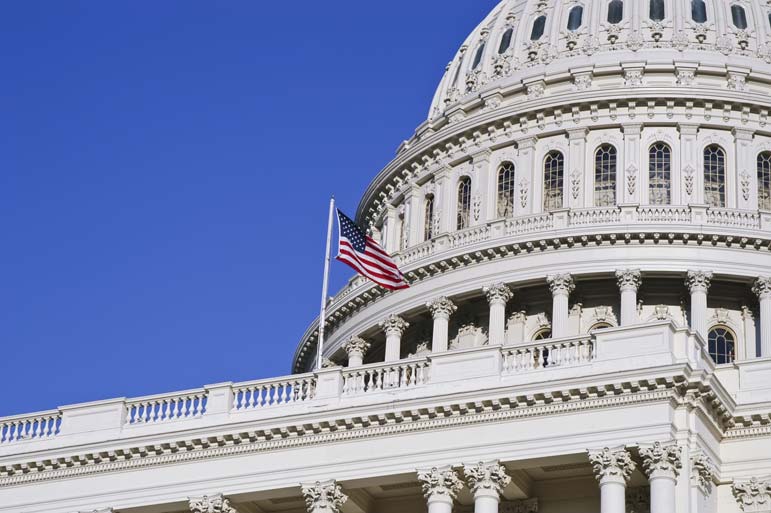
When the Trump team began its North Korea diplomacy, it assured the American public it would not repeat past mistakes. Yet a familiar pattern is repeating itself: The United States is getting roped into an unending, unclear process of gradual arms control negotiations with Pyongyang that has only a slim chance of persuading Kim to give up all his nukes - which was supposed to be the plan.
One could argue we are safer while engaged with North Korea, as opposed to the alternative. "Jaw, jaw is better than war, war," the famous quote often attributed to Winston Churchill goes. But even Trump now admits there's only a "decent chance" North Korea will denuclearize. If the Trump administration is changing the goal from denuclearization to arms control, it ought to be honest about that with Congress and the American people.
On Capitol Hill, there's widespread and bipartisan concern that recent moves by South Korean President Moon Jae-in to offer economic concessions to the Kim regime absent any real commitments are undermining U.S. leverage. Sens. Ted Cruz, R-Tex., and Robert Menendez, D-N.J., wrote to Secretary of State Mike Pompeo this week urging him to keep the pressure on and convince Seoul to do the same.
"The U.S.-South Korea alliance is vital to our national security, and it's important to avoid unnecessary strains which would occur if President Moon moved to prematurely lift sanctions on Kim Jong Un and his regime," Cruz told me, adding that the Kim regime is "seeking to drive a wedge between America and South Korea."
The letter points to several recent Moon administration actions, including moving to reopen jointly operated industrial complexes inside North Korea, promising to break ground on a North-South railroad "within this year," and pressing European countries to consider lifting sanctions on Pyongyang. Last month, Moon said he wanted to lift international sanctions "as soon as possible."
The senators are reminding both the Moon and Trump administrations that North Korea sanctions are enforced by a series of United Nations resolutions and U.S. laws. The letter states it's impossible to be sure Seoul's moves don't run afoul of those laws and Moon is weakening our negotiating position vis-Ã -vis Pyongyang.
"As we approach the Vietnam summit and look to keep the denuclearization track and the North-South track lashed, we must put a premium on close coordination and alignment on how we approach continued pressure," Menendez told me.
The State Department has been working on better coordination with Seoul, establishing a working group under special envoy Stephen Biegun, the lead U.S. negotiator. But recent reports suggest the United States is moving closer to Moon's position, not the other way around.
Biegun is reportedly preparing an "economic package" for Kim that would include a "pot of gold" escrow account to incentivize him to give up his nuclear arsenal. At a recent speech at Stanford University, Biegun acknowledged there's "little indication" Kim has decided to completely denuclearize, but said the strategy is to "change the trajectory of their policies by changing the trajectory of our own." Biegun also repeated the Trump administration's mantra that "we will not lift sanctions until denuclearization is complete."
But if South Korea moves ahead to normalize its economic relations with North Korea, U.S. pressure will be rendered impotent and Pyongyang's incentive for denuclearizing will vanish.
The original plan was that North Korea would give up its nuclear weapons within "one year." But now, some officials talk of an "indefinite denuclearization process," a perpetual negotiation that allows the United States to claim progress toward denuclearization while providing an alibi for why Pyongyang never actually gets there.
"The 'final, fully verified denuclearization' is impossible, North Korea will never, ever accept it," said Andrei Lankov, director of the Korea Risk Group. "So, the references to the ongoing 'process' will be used to sweeten the pill, to disguise the ugly fact U.S. public opinion is reluctant to swallow: We are talking not 'final, fully verified denuclearization' but good old arms control and arms reduction."
Some argue this is a better outcome than war and perhaps the best we can manage when dealing with an evil yet rational regime that knows how to use its leverage. After all, our own intelligence agencies assess it unlikely Kim will ever give up his nukes, so long-term containment, continued deterrence and some ongoing pressure may be where we are headed anyway.
The problem is, that's not the outcome the Trump administration is promising. And at some point, Trump will have to bring his North Korea deal to the Senate for advice and consent. If he hasn't been straight with the American people about this compromise, they and their representatives will surely cry foul.
Sign up for the daily JWR update. It's free. Just click here.
(COMMENT, BELOW)


 Contact The Editor
Contact The Editor
 Articles By This Author
Articles By This Author